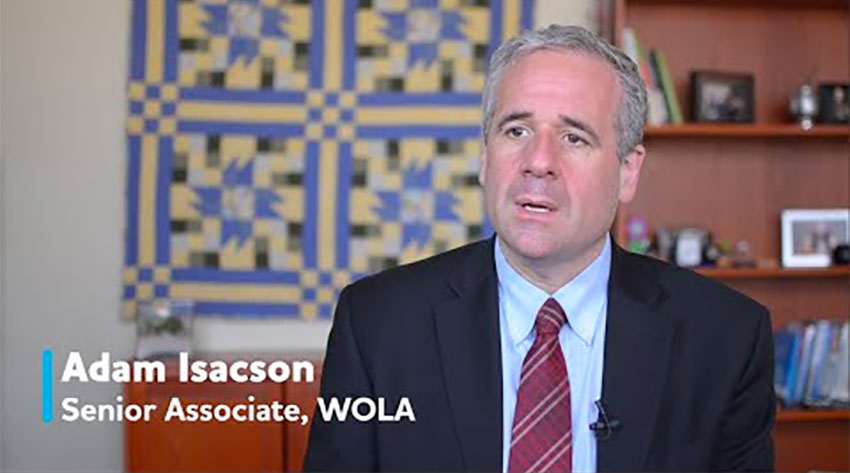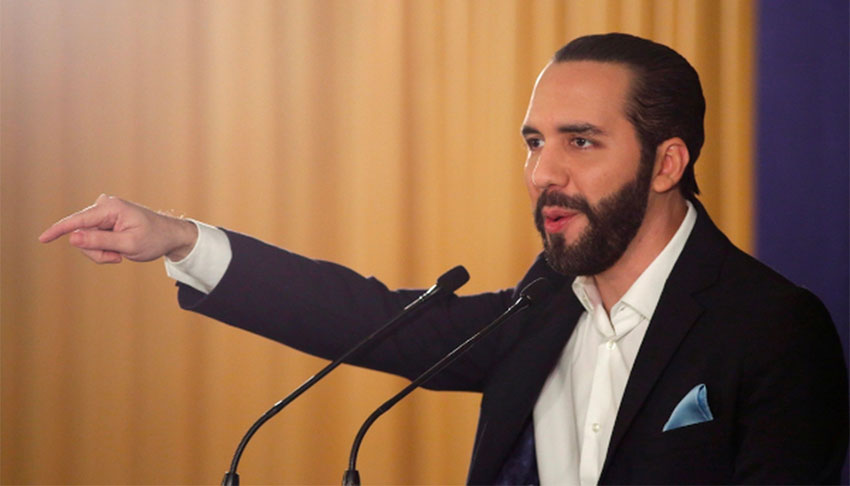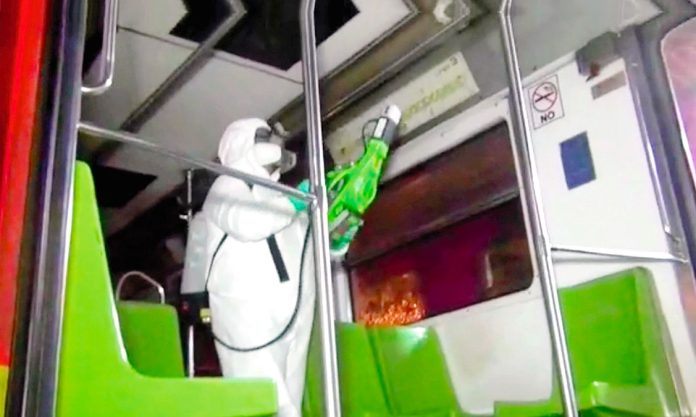Mexico is facing growing criticism for its response to the global coronavirus pandemic, with one scientist warning that the country “could end up in a situation like Italy,” where there are tens of thousands of confirmed Covid-19 cases and more than 2,500 people have died.
The federal government has announced a social distancing initiative to encourage people to avoid close contact — which doesn’t go into effect until March 23, more and more large events are either being postponed or cancelled and schools and universities are set to close in the coming days if they haven’t already done so.
However, the government is not considering closing Mexico’s borders even as many other countries restrict or ban the entry of foreigners as part of efforts to contain the spread of Covid-19, while President López Obrador has been criticized for continuing his campaign-style rallies at which he greets throngs of supporters with hugs, kisses and handshakes.
The president “is under fire for his blasé attitude about the coronavirus,” Adam Isacson, director of defense oversight for the Washington Office on Latin America (WOLA), told the news website The Hill in an e-mail.
“He is leaving border states and towns picking up the slack. Many won’t be able to do so,” he wrote.
Critics of the federal government’s largely hands-off approach to preparing for an expected widespread outbreak of coronavirus say that it is driven by bad memories of a shutdown in Mexico in 2009 due to the H1N1, or swine flu, pandemic that deepened the country’s recession.
Authorities acted quickly at the time, shutting down public life in Mexico City and other parts of the country. The spread of the swine flu was swiftly contained and normality resumed within weeks. However, the response shaved a percentage point off GDP growth in 2009, according to some estimates, at a time when the economy was already struggling as a result of the global financial crisis. GDP ended up contracting 5.3% in 2009, the economy’s biggest decline since 1995.
Now, according to a report by the news agency Reuters, “the gamble is straightforward: Mexico’s economy was stagnating even before the Covid-19 outbreak shuttered factories worldwide and the government has said it wants to limit economic damage by not over-reacting.”
Deputy Health Minister Hugo López-Gatell, the government’s main spokesperson on the coronavirus pandemic, said last week that “the economic loss” in 2009 “was directly related, in the most past, to the disruption of tourism, trade and services.”
López-Gatell, a senior official in the Health Ministry’s epidemiology department during the swine flu crisis, said that is “why it is so important, with very careful precision, not to take preemptive actions that do not correspond to the magnitude of the risk.”
He said on Tuesday that there is no scientific evidence that shows that closing borders contains the spread of contagious diseases and charged that countries around the world are making the same mistake as Mexico did in 2009, taking decisions based on anxiety and social pressure rather than science.

“Acting responsibly, we can’t and should not take measures that exhaust our society. Let’s not use up all the interventions too soon. Let’s keep our calm,” López-Gatell said.
For his part, President López Obrador on Wednesday ruled out closing airports and implementing other tough measures such as closing restaurants, asserting that he is aiming to prevent a complete shutdown of the economy that would hurt the poor.
López Obrador said that there are “pressures of all types” to respond in a more extreme way to the growing threat of a widespread Covid-19 outbreak but his government won’t bow to them.
“Close the airport, shut down everything, paralyze the economy. No,” he told reporters at his regular news conference.
“Of course we’re worried about the situation of the epidemic, and we have to attend to it, but we also have to act responsibly.”
According to a report by the news agency Bloomberg, the Mexican economy is facing a perfect storm due to a possible recession in the United States – the country’s largest trading partner, a drastic reduction in oil revenue due to the slump in crude prices and a downturn in tourism as travelers stay at home as Covid-19 spreads around the world.
Investment bank Credit Suisse is now predicting that the Mexican economy will contract by 4% this year but López Obrador expressed optimism that the global economy will stabilize as a result of the “direct, deep” intervention of the United States government.
“They will do everything to stabilize so that helps every country in the world,” he said, adding that his government will tighten the budget while expanding its signature welfare programs such as pensions for the elderly.
While the federal government is taking a softly-softly approach to responding to the coronavirus threat for fear of hurting the economy, some Mexican scientists are worried about what the impact of not acting more quickly and broadly will be.
“I am worried that we [will] end up in a situation like Italy, where measures weren’t taken on time, and the number of cases started to get away from them,” said Rosa María del Angel, head of the Department of Infectomics and Molecular Pathogenesis at the National Polytechnic Institute.
In the event of a widespread outbreak, wealthier states are likely to be much better equipped to respond than poorer ones such as Chiapas, Oaxaca and Guerrero in Mexico’s south. The security situation in individual states could also affect authorities’ ability to respond to the potential need to provide medical treatment to a large number of Covid-19 patients.
In Tamaulipas, for example, where cartel-fueled violence is a major problem, Isacson, the WOLA defense oversight director, said that the capacity of authorities is unclear.

“I don’t even have a good sense of what local authorities are doing and whether the security situation will hamper response,” he told The Hill.
Isacson also said that a widespread outbreak of Covid-19 could pose a particular threat to thousands of migrants living in shelters and camps along the Mexico-United States border.
“It will be an absolute miracle if the virus doesn’t sweep through those shelters and camps like a genuine plague. And I don’t see preparations for that underway. When chicken pox swept through the Mexican government shelter in [Ciudad] Juárez over the holidays, they just closed it for a few days. I don’t see what good that will do,” he wrote.
The government’s apparent failure to take the coronavirus threat seriously has also led to a spat between Mexico and El Salvador.
The president of the Central American nation, Nayib Bukele, claimed Monday that 12 people confirmed to have Covid-19 were intending to travel to San Salvador from Mexico City and criticized Mexico for not stopping them.
Although Mexico said that none of the 12 people in question had coronavirus or had even been tested for it, the airline Avianca cancelled the flight after Bukele said it wouldn’t be allowed to land in El Salvador.
In a Twitter message directed to Mexico’s Foreign Minister Marcelo Ebrard, the Salvadoran president urged Mexico to take the coronavirus threat more seriously.
“I beg you to take drastic and forceful measures in the face of this pandemic. Mexico is a very big country and its responsibility should be too,” Bukele wrote.
“Otherwise, in 20 days the epicenter of this pandemic will not be Europe, but North America. Stop looking at this as something normal, please.”
